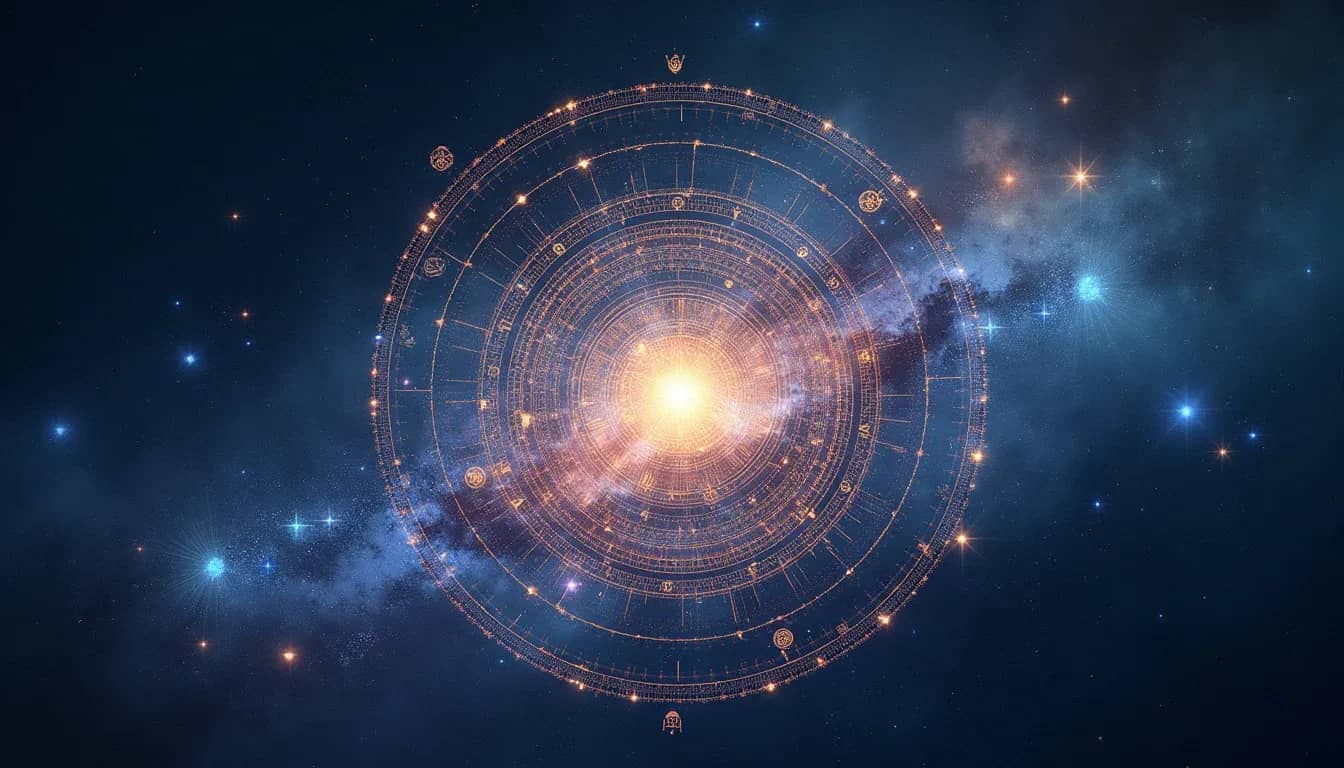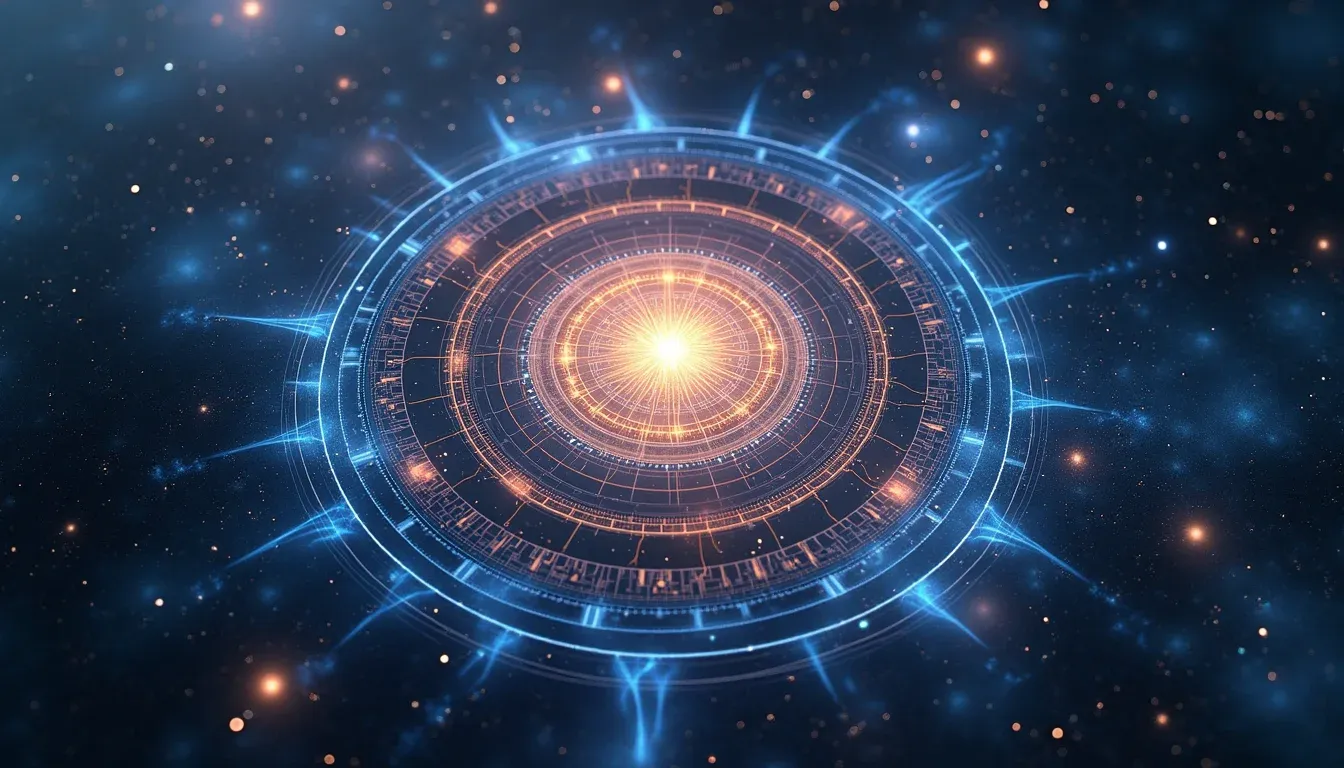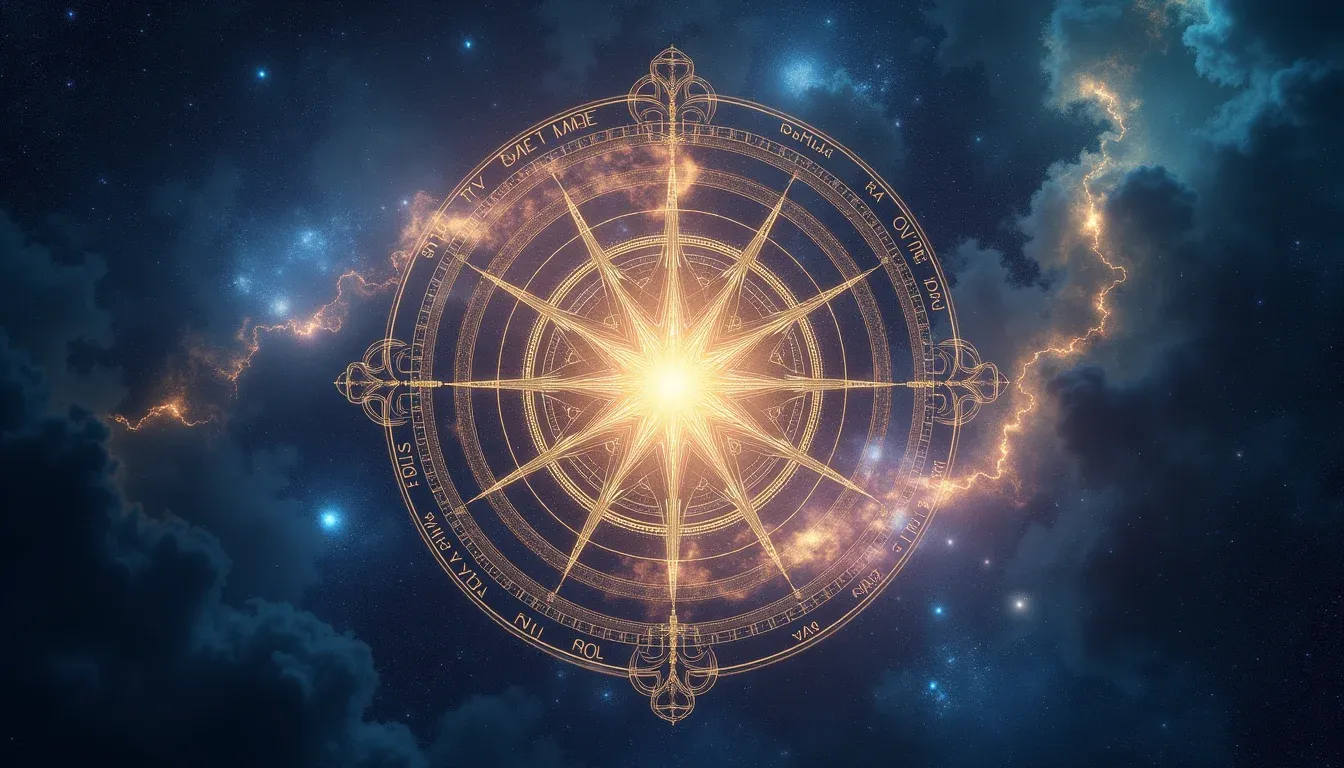Embracing the Brahma Muhurta: Unlocking the Secrets of Di...
Discover Brahma Muhurta insights and guidance from expert astrologers.
In the hustle and bustle of modern life, we often overlook the profound wisdom that ancient practices like Vedic astrology can offer. One such practice is the concept of Brahma Muhurta, a sacred time that holds immense spiritual significance and potential for personal transformation. Imagine waking up during this magical window, where the energies of the universe align perfectly to facilitate clarity, creativity, and spiritual growth. This article delves deep into the essence of Brahma Muhurta, guiding you on how to harness its power for a more fulfilling life.
The Cosmic Foundation: Understanding Brahma Muhurta
Brahma Muhurta translates to "the Creator's hour" in Sanskrit, signifying a time when the universe is at a peak of spiritual energy. This auspicious period occurs approximately 1.5 hours before sunrise, typically between 4:00 AM and 6:00 AM, depending on your geographical location. According to ancient texts, this time is particularly beneficial for meditation, prayer, and self-reflection, as the vibrations of the earth are calming and conducive to spiritual practices.
Astrologically, Brahma Muhurta is governed by the influence of the Moon and its position with respect to the Sun. During this time, the energies of both celestial bodies harmonize, allowing for heightened intuition and creativity. When you align your activities with this cosmic rhythm, you not only enhance your spiritual well-being but also tap into a reservoir of energy that can propel you toward your goals.
The Spiritual Significance of Brahma Muhurta
The significance of Brahma Muhurta extends beyond mere timekeeping; it embodies the principles of Sattva, Rajas, and Tamas—the three gunas or qualities of nature. Brahma Muhurta is primarily associated with Sattva, the quality of purity and harmony. This time is devoid of distractions and disturbances, making it the ideal period for spiritual practices.
In traditional Vedic literature, it is said that those who engage in meditation or chant mantras during Brahma Muhurta are blessed with wisdom and clarity. The stillness of the early morning allows for deeper introspection, enabling you to connect with your higher self and the universe. Engaging in spiritual practices during this time can also help in balancing your mental state, reducing stress, and fostering an overall sense of well-being.
How to Incorporate Brahma Muhurta into Your Daily Routine
Integrating Brahma Muhurta into your daily life may seem challenging, especially if you are accustomed to a different schedule. Here are some practical steps to help you make the most of this sacred time:
First, aim to go to bed earlier. A restful night's sleep is essential for waking up refreshed during Brahma Muhurta. Establish a calming bedtime routine that includes limiting screen time and engaging in calming activities such as reading or gentle stretches.
Next, set an alarm to wake up at least 30 minutes before Brahma Muhurta begins. This allows you to prepare mentally and physically for the practices you wish to engage in. As you wake up, take a moment to express gratitude for the new day and set your intentions.
During this time, consider practicing meditation, yoga, or chanting mantras. The Gayatri Mantra, for example, is a powerful invocation of divine light and wisdom, making it an excellent choice for your Brahma Muhurta practice. Reciting this mantra can elevate your consciousness and help you connect with the universal energies at play.
Personalized Guidance Awaits
Our expert astrologers can reveal remedies tailored specifically to your birth chart. Connect with us for a live consultation.
Get Deep Insights with our various ReportsThe Role of Intention Setting during Brahma Muhurta
Intention setting is a powerful practice that can amplify the benefits of Brahma Muhurta. As you rise during this auspicious time, take a few minutes to reflect on your goals and aspirations. Write down your intentions in a journal, focusing on what you wish to manifest in your life.
The act of writing not only clarifies your thoughts but also sends a strong message to the universe about your desires. This is particularly potent during Brahma Muhurta, as the energies are aligned to support your intentions.
Consider incorporating affirmations that resonate with your goals. For instance, if you seek clarity in your career, affirmations like "I am aligned with my true purpose" can help reinforce your intentions.
The Mantras to Elevate Your Brahma Muhurta Experience
Chanting mantras during Brahma Muhurta can significantly elevate your spiritual experience. Here are a few powerful mantras to consider:
The Maha Mrityunjaya Mantra is a powerful invocation of health and wellness, ideal for those seeking physical and spiritual healing. Reciting this mantra can help you cultivate a sense of balance and vitality as you embark on your day.
The Saraswati Vandana is another excellent choice for enhancing creativity and wisdom. As the goddess of knowledge and arts, invoking Saraswati during Brahma Muhurta can facilitate clarity of thought and inspiration.
Additionally, the Om Namah Shivaya mantra, dedicated to Lord Shiva, can help you connect with your inner self and foster a sense of peace. This mantra is especially beneficial for those seeking emotional balance and spiritual growth.
Explore Astrosight Services
- Connect with our astrologers for personalized insights
- Explore more about the significance of timing in Vedic astrology
- Learn about the benefits of meditation and mindfulness practices
- Discover rituals to enhance your spiritual journey
Overcoming Challenges to Rise During Brahma Muhurta
Rising early for Brahma Muhurta can be challenging, especially if you are not a natural early riser. Here are some strategies to help make this practice easier:
Start gradually by setting your alarm just 10-15 minutes earlier than usual. Once you acclimate to this new wake-up time, gradually move it back until you reach the optimal Brahma Muhurta window.
Create a motivating environment by placing an inspiring quote or image near your bedside. This reminder can serve as a gentle nudge to rise with purpose.
Consider using natural light to your advantage. Opening your curtains the night before can allow natural light to gently wake you up or consider using a sunrise alarm clock that simulates the rising sun.
Transforming Your Life with Brahma Muhurta
The benefits of embracing Brahma Muhurta are profound and transformative. By dedicating this sacred time to spiritual practices, you can cultivate a sense of purpose and direction in your life. Regular engagement during this period can lead to enhanced mental clarity, emotional stability, and spiritual growth.
Moreover, Brahma Muhurta serves as a sanctuary for self-discovery. It encourages you to delve deeper into your thoughts and feelings, helping you understand your true desires and aspirations. By aligning your life with the cosmic rhythms of the universe, you create a harmonious flow that allows for personal and spiritual evolution.
As you immerse yourself in the practices associated with Brahma Muhurta, you may find that your intuition sharpens, your relationships deepen, and your overall well-being flourishes. The ancient wisdom of Vedic astrology reminds us that we are not separate from the cosmos; rather, we are integral parts of a grand design.
In conclusion, Brahma Muhurta represents a unique opportunity for personal transformation and spiritual growth. By awakening during this sacred hour, you can align yourself with the cosmic energies that foster clarity, creativity, and harmony. Whether you choose to meditate, chant mantras, or set intentions, the practices you engage in during Brahma Muhurta can profoundly impact your life.
Embrace the transformative power of this auspicious time and allow it to guide you on your journey. Remember, the universe is always supporting you; all you need to do is tune in and take that first step.
Explore this sacred practice, and you may find that the dawn of each new day brings you closer to your highest self. Seize the opportunity of Brahma Muhurta, and watch as it illuminates your path to a more fulfilling and purposeful life.

Dr. Meenakshi Sharma
PhD in Vedic Astrology, 20+ Years Experience
18 + Years of Experience
100+ Readers
Dr. Meenakshi Sharma is a distinguished Vedic astrologer with a PhD in Vedic Astrology and over 20 years of professional experience in the ancient science of Jyotisha. Her extensive practice encompasses thousands of chart readings, predictive analyses, and remedial consultations, making her uniquely qualified to bridge traditional Vedic wisdom with contemporary applications. As a contributing writer for AstroSight, Dr. Sharma specializes in natal chart analysis, predictive astrology, and Vedic remedial measures, sharing her deep knowledge through insightful articles that make complex astrological concepts accessible to practitioners at all levels. Her approach combines rigorous academic training with ethical consultation standards, empowering clients through education and practical guidance while maintaining authentic adherence to classical Vedic principles.






